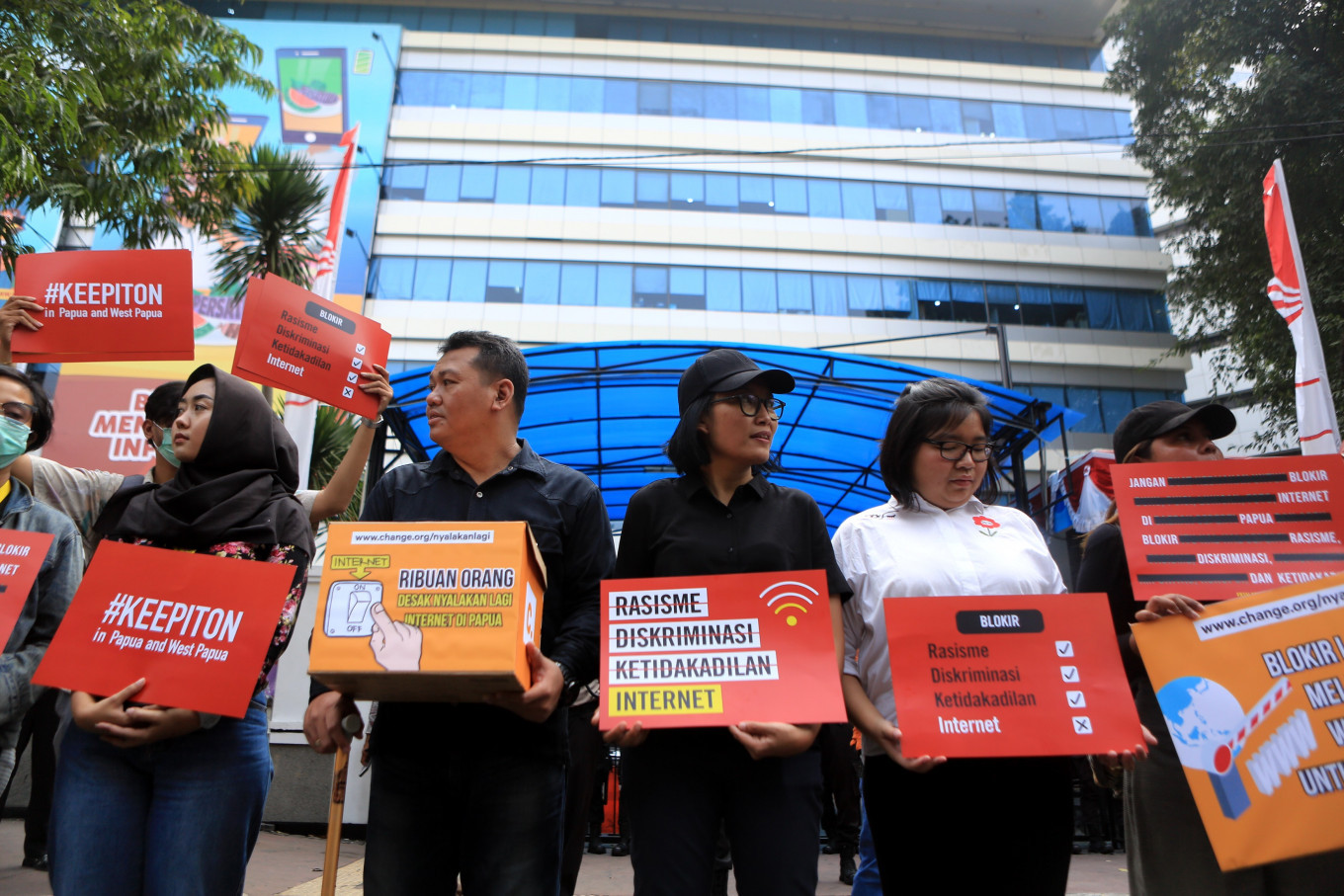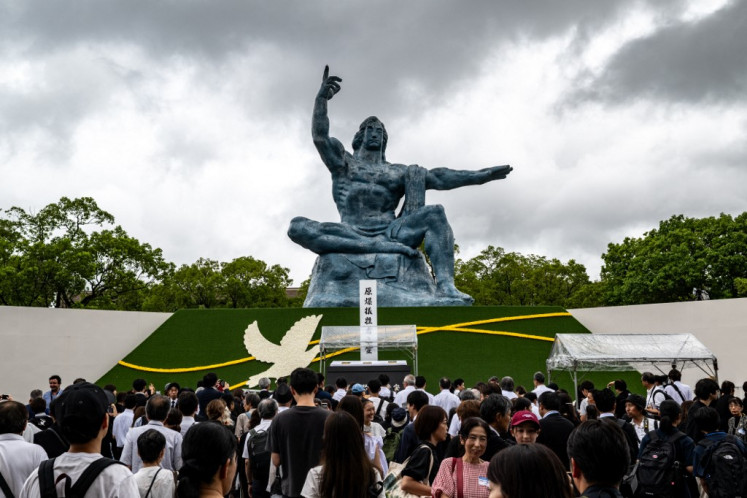Popular Reads
Top Results
Can't find what you're looking for?
View all search resultsPopular Reads
Top Results
Can't find what you're looking for?
View all search resultsIllegal internet ban
Democratic progress has certainly given us liberal legislation such as the Freedom of Information Law but citizens must be constantly on their guard as those in power repeatedly find excuses to dictate what we should know and how we should think.
Change text size
Gift Premium Articles
to Anyone
N
ever again — that’s the message from Wednesday’s ruling by the Jakarta State Administrative Court, that the Indonesian state should never again impose an internet blackout as it did last August and September, on the grounds of curbing further unrest following massive demonstrations in response to the racist abuse of Papuan students by authorities in Surabaya, East Java.
The government had violated the 1959 State Emergency Law, the court said, as it failed to prove that the country was in a state of emergency, which would have justified the blackout. The court ruled that the government cannot limit people’s right to information based solely on its discretion. Such a decision must be based on the law; thus, President Joko “Jokowi” Widodo and the Communications and Information Ministry were found to have acted illegally.
The blackouts crippled access to vital information and press coverage in the provinces of Papua and West Papua, affecting 29 cities and regencies from Aug. 21 to Sept. 4, and another six regencies and cities from Sept. 4 to 9. The ensuing riots and tough security response left at least 33 people dead and displaced thousands of people, both indigenous Papuans and others.
Previously in May in Jakarta, following the official announcement that President Jokowi had won reelection, the government blocked social media and instant messaging, arguing it was an attempt to block the spread of videos, pictures and fake news relating to rallies in opposition to the announcement.
Congratulations are due to all the plaintiffs, including civil society groups such as the Southeast Asia Freedom of Expression Network (SAFEnet), for their hard work in this case. We should further support their persistent struggle to have the Electronic Information and Transactions (ITE) Law revised, as it has led to the unjust prosecution of too many citizens charged with defamation, spreading false news and hate speech.
Citizens still need to be wary as the above court ruling said the ITE Law could be enforced to block access to electronic information and documents violating the law, but not the entire internet. The judges argued fake news should be handled by the Criminal Code or by blocking the relevant accounts rather than shutting down internet access completely.
We must also be wary of the planned revisions to the Criminal Code, to avoid further restrictions and prosecution of citizens. In the wake of the COVID-19 pandemic we have seen attempts to empower the state even more on the grounds of curbing the virus.
Also on Wednesday Michelle Bachelet, the United Nations High Commissioner for Human Rights, expressed alarm at the clampdown on freedom of information and expression, including arrests and investigations of citizens and journalists in a dozen countries in the Asia Pacific including in Indonesia.
“This crisis should not be used to restrict dissent or the free flow of information and debate,” Bachelet said.
Democratic progress has certainly given us liberal legislation such as the Freedom of Information Law but citizens must be constantly on their guard as those in power repeatedly find excuses to dictate what we should know and how we should think.










